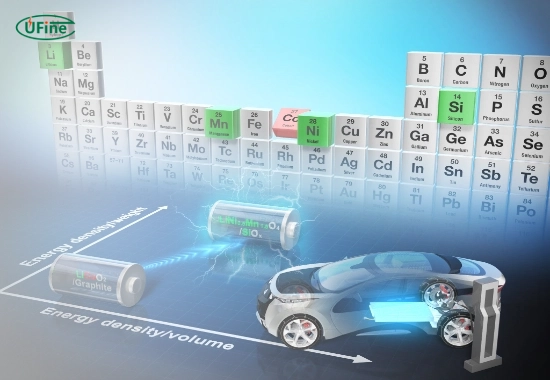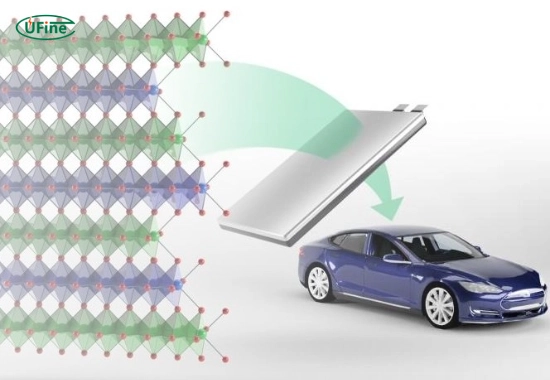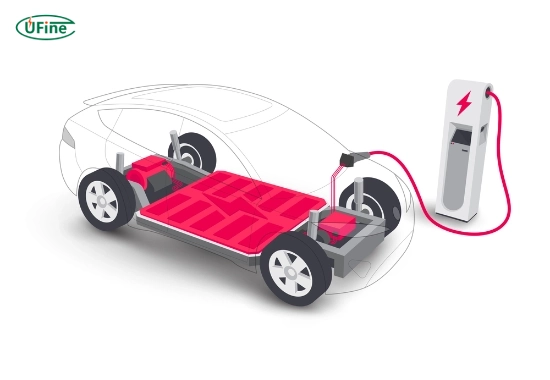
- Part 1. What are cobalt free batteries?
- Part 2. Why are cobalt free batteries important?
- Part 3. How do cobalt free batteries work?
- Part 4. Benefits of cobalt free batteries
- Part 5. Challenges facing cobalt free batteries
- Part 6. The role of research and development
- Part 7. Major players in cobalt free battery development
- Part 8. Future prospects of cobalt free batteries
- Part 9. FAQs
Cobalt-free batteries are changing the electric vehicle (EV) market by offering a sustainable alternative to traditional lithium-ion batteries that use a lot of cobalt. As the demand for electric vehicles grows, manufacturers are looking for ways to improve battery performance. They also want to address the ethical and environmental issues linked to cobalt mining.
This article explores the transformative impact of cobalt-free batteries on the EV landscape. It discusses their benefits, challenges, and future potential.
Part 1. What are cobalt free batteries?
Cobalt-free batteries are energy storage systems that do not contain cobalt. Traditionally, cobalt is important in lithium-ion batteries because it enhances energy density and stability. However, cobalt mining raises serious ethical issues, such as labor exploitation and environmental harm, especially in the Democratic Republic of Congo.
Cobalt-free alternatives use materials like nickel, manganese, iron, or sodium. These materials aim to maintain or improve battery performance while reducing reliance on cobalt. By combining these elements, manufacturers can create batteries that meet the increasing demands of the EV market without compromising ethical standards.
Part 2. Why are cobalt free batteries important?
The significance of cobalt-free batteries lies in several key factors:
- Ethical Sourcing: Cobalt mining often involves exploitative labor and environmental harm. By eliminating cobalt from battery production, manufacturers can promote responsible sourcing. This change can lead to better working conditions in mining regions.
- Cost Reduction: Cobalt is one of the most expensive materials in battery production. By reducing or removing its use, manufacturers can lower production costs. This makes electric vehicles more accessible to a wider audience.
- Supply Chain Stability: The supply of cobalt is concentrated in a few countries, which creates vulnerabilities in the supply chain. Cobalt-free batteries help reduce these risks by diversifying material sources. This decreases dependence on geopolitically sensitive regions.
- Environmental Benefits: Cobalt mining can severely impact local ecosystems and communities. Switching to cobalt-free technologies can significantly reduce this ecological footprint.
Part 3. How do cobalt free batteries work?
Cobalt-free batteries operate on principles similar to traditional lithium-ion batteries but utilize alternative materials for their cathodes and anodes. Here’s a closer look at their components:
- Anode: Typically made of graphite or silicon-based materials, which allow efficient ion storage and transfer.
- Cathode: Instead of cobalt-based compounds, these batteries use nickel-rich or iron-based materials. These can deliver high energy densities.
- Electrolyte: A lithium salt dissolved in an organic solvent helps ions move between the anode and cathode during charging and discharging.
- Separator: A porous membrane prevents direct contact between the anode and cathode. It allows ions to pass through, ensuring safety during operation.
This structure enables cobalt-free batteries to store and release energy efficiently while maintaining safety standards comparable to traditional lithium-ion batteries.
Part 4. Benefits of cobalt free batteries
Cobalt-free batteries present several advantages that make them appealing for electric vehicles:
- Enhanced Safety: Without cobalt, which can cause thermal runaway reactions in certain conditions, these batteries may have improved safety during operation.
- Longer Lifespan: Some cobalt-free formulations show longer cycle life and better performance over time compared to conventional lithium-ion batteries. This makes them more durable.
- Environmental Impact Reduction: By reducing the demand for cobalt mining, these batteries can lower the ecological footprint linked to battery production and disposal.
- Performance Improvements: Ongoing technological advancements allow cobalt-free batteries to achieve energy densities and efficiencies similar to traditional lithium-ion batteries.
Part 5. Challenges facing cobalt free batteries
Despite their many benefits, cobalt-free batteries face several challenges:
- Energy Density Limitations: While advancements are being made, some cobalt-free chemistries still lag behind traditional lithium-ion batteries in energy density, which is critical for the EV range.
- Manufacturing Processes: The production processes for alternative materials may still need to be more refined and scalable than those for conventional battery materials, posing challenges for mass adoption.
- Market Acceptance: Consumers and manufacturers may hesitate to adopt new technologies without proven track records or widespread industry endorsement.
Part 6. The role of research and development
Ongoing research and development are crucial for advancing cobalt-free battery technologies. Key areas of focus include:
- Material Innovation: Scientists are exploring new compounds that can enhance battery performance while being cost-effective. Innovations in material science could lead to breakthroughs in energy density and efficiency.
- Recycling Technologies: Developing efficient recycling methods for cobalt-free batteries can create a circular economy in the EV market. This approach reduces waste and resource use.
- Pilot Programs: Manufacturers are launching pilot programs to test cobalt-free batteries in real-world conditions. These trials provide valuable data for future designs and improvements.
Part 7. Major players in cobalt free battery development
Several companies are leading the charge in developing cobalt-free battery technologies:
- Tesla: Tesla is actively researching alternatives to cobalt in its battery supply chain. The goal is to produce more sustainable EVs without sacrificing performance.
- CATL (Contemporary Amperex Technology Co., Limited): This Chinese company is leading the development of high-performance cobalt-free batteries for various applications, including electric vehicles.
- Panasonic: Panasonic invests heavily in research to create more sustainable battery solutions. They aim to maintain high-performance standards across their product lines.
Part 8. Future prospects of cobalt free batteries
The future looks promising for cobalt-free batteries as technology continues to advance:
- Increased Adoption: As awareness of ethical sourcing and environmental impacts grows, more manufacturers may adopt cobalt-free options in their products.
- Government Regulations: Stricter rules on mining practices could encourage manufacturers to adopt alternative battery technologies. This helps them comply with sustainability goals.
- Technological Breakthroughs: Ongoing innovation may lead to advances that improve energy density, efficiency, and overall performance in cobalt-free battery technologies.
Part 9. FAQs
-
What makes cobalt free batteries more sustainable?
Cobalt-free batteries eliminate reliance on ethically problematic mining practices associated with cobalt extraction, promoting responsible sourcing and reducing environmental harm. -
How do manufacturers ensure performance without cobalt?
Manufacturers utilize advanced materials such as nickel-rich compounds or iron-based alternatives that provide comparable energy densities while enhancing safety features. -
What impact do cobalt free batteries have on electric vehicle pricing?
Manufacturers can lower production costs by reducing reliance on expensive materials like cobalt, potentially making electric vehicle options more affordable for consumers. -
Are there any long-term reliability concerns with cobalt free batteries?
While ongoing research aims to address potential reliability issues, many current formulations demonstrate long-cycle lives comparable to traditional lithium-ion options when adequately engineered. -
How will consumer perceptions affect the adoption of cobalt-accessible technologies?
Consumer awareness regarding ethical sourcing practices will likely influence purchasing decisions; as education about the benefits of cobalt-free options increases, acceptance is expected to grow accordingly.
Related Tags:
More Articles

Battery Load Test: A Comprehensive Guide
Step-by-step battery load test guide for car, solar & industrial use. Learn how to load test a battery, interpret voltage charts, and avoid common mistakes.
The Comprehensive Guide to Battery Balancing and Battery Balancer
Discover how battery balancers improve lithium battery performance, lifespan, and safety. Learn types, functions, and tips to choose the right balancer.
What Is the Best Voltage for a Chainsaw Battery?
Compare 12V-80V chainsaw batteries for light pruning, medium firewood, and professional cutting. See best battery chainsaw with runtime charts and safety tips.
Lithium VS. Alkaline Batteries: A Comprehensive Comparison
Lithium batteries last 3–7× longer than alkaline and perform better in cold weather. Compare lifespan, cost, safety, and best uses to choose the right battery.
Comparing Lithium-Sulfur and Lithium-Ion Batteries: Which is Right for You?
Compare lithium-sulfur (Li-S) and lithium-ion batteries on energy, lifespan, cost, safety, and applications. Best choice for drones, EVs, and electronics.





